As I experienced the charm and enchantment of this local Shakespeare festival, it was easy to become forgetful in the best sense of the word, imagining a world of localism, free of globalist domination and unseen by the Eye of Sauron.
 A couple of years ago, I was driven by an atheist friend to the Shrine of Our Lady of Walsingham in the English rural shire of Norfolk. Expecting my friend to find the Catholicism of the place to be anathema, I suggested that he take an excursion to the nearby coast where a walk along the beach would bring him into the presence of wild seals. To my surprise, he opted to stay, possibly out of a morbid curiosity. We visited the priory ruins, demolished almost five hundred years earlier by Henry VIII, and my friend tagged along while I went to pray in the chapel of a local convent, the first time, to my knowledge, that he had even been in the presence of the Blessed Sacrament. In the evening, we imbibed heartily with a merry Irish Franciscan in a local inn, my friend clearly charmed by this latter-day Friar Tuck. At day’s end, I asked him what he thought of Walsingham. Uncharacteristically starry-eyed, he told me that it felt as though he had entered the elven kingdom of Rivendell, so different was it in spirit from the secular culture surrounding it.
A couple of years ago, I was driven by an atheist friend to the Shrine of Our Lady of Walsingham in the English rural shire of Norfolk. Expecting my friend to find the Catholicism of the place to be anathema, I suggested that he take an excursion to the nearby coast where a walk along the beach would bring him into the presence of wild seals. To my surprise, he opted to stay, possibly out of a morbid curiosity. We visited the priory ruins, demolished almost five hundred years earlier by Henry VIII, and my friend tagged along while I went to pray in the chapel of a local convent, the first time, to my knowledge, that he had even been in the presence of the Blessed Sacrament. In the evening, we imbibed heartily with a merry Irish Franciscan in a local inn, my friend clearly charmed by this latter-day Friar Tuck. At day’s end, I asked him what he thought of Walsingham. Uncharacteristically starry-eyed, he told me that it felt as though he had entered the elven kingdom of Rivendell, so different was it in spirit from the secular culture surrounding it.
I experienced a similar sense of enchantment this past weekend when I visited the Flint Hills Shakespeare Festival in the American rural shire of St. Marys in Kansas. This is an annual festival, held in early autumn, in which the whole community comes together, bestowing on the event the feel of a village celebration. Apart from the performance of a Shakespeare play, which this year was Macbeth, there is also a mediaeval fair, nestled in the woods, overshadowed by a canopy of trees, resplendent in their autumnal gowns of green and golden brown. It is easy, once one crosses the threshold, to imagine oneself at a village fair in Merrie England. Many of the locals dress in mediaeval costume. Ladies and girls glide past in long, flowing gowns, reminding the Romantics in their midst of poems by Keats or Tennyson, or Pre-Raphaelite paintings by Millais or Waterhouse. As if to add to the enchantment, some of these damsels are not merely mortal but are elven maidens, as is evident from their pointed ears. As for the menfolk, some are dressed as crusaders in shining armour and others as priests in cassocks, the latter of whom are dressed in their normal daily attire, there being no fewer than twelve priests in residence in this particular rural shire. Children are everywhere, this being a culture that values life.
At one end of the festival grounds is the stage and hand-built set, adorned with St. Andrew’s Cross flags to signify the Scottish setting of this year’s play; at the other is the George, the inn at which a selection of locally crafted ales are on offer. In front of the inn, a large bonfire blazes, around which the revellers gather to converse and make merry. Just across from the fire is the stage at which folk music is played by a succession of groups of local musicians. Americana is evident, as is the music of Ireland and Scotland. There is much dancing and a good deal of singing along to the better-known songs. In between the inn and the stage on which Macbeth is being performed are dozens of stalls offering local fare. Soups, pies, meats and other victuals, made according to family recipes, assuage the hunger of playgoers and revellers alike. Other stalls offer local crafts. Jewelry, stained glass, soaps, candy, knitwear, handcrafted toys. And then there are the games. Archery, trials of strength, raffles, and so much more.
On the first night, I settled down to watch the play, which was remarkably good for an amateur production. Lady Macbeth was particularly and wickedly convincing, and the weird sisters were appropriately weird and creepy. After the performance, I made a beeline for the George. On the following evening, I gave a talk on the stage, prior to that evening’s performance, on “Macbeth and the Gunpowder Plot,” considering the play in the context of the tyrannous and treacherous times in which it was written, and connecting Macbeth with that other Scottish king, James I, who was on the throne of England at the time the play was written.
As I experienced the charm and enchantment of the festival, it was easy to become forgetful in the best sense of the word, imagining a world of localism, free of globalist domination and unseen by the Eye of Sauron. Like my atheist friend, I could feel, for a day or two, that I was in an enchanted place, beyond the reach of the Dark Lord, though my experience of Shakespeare among the shire-folk reminded me more of Hobbiton than Rivendell.
The Imaginative Conservative applies the principle of appreciation to the discussion of culture and politics—we approach dialogue with magnanimity rather than with mere civility. Will you help us remain a refreshing oasis in the increasingly contentious arena of modern discourse? Please consider donating now.
The featured image is courtesy of Pixabay.


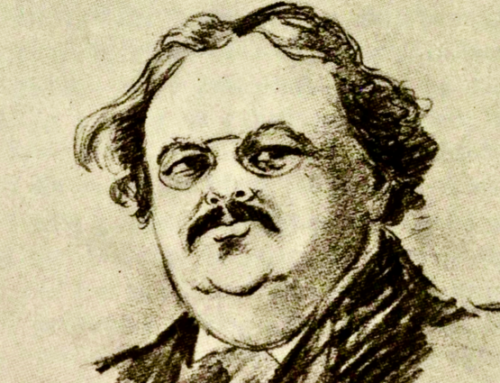
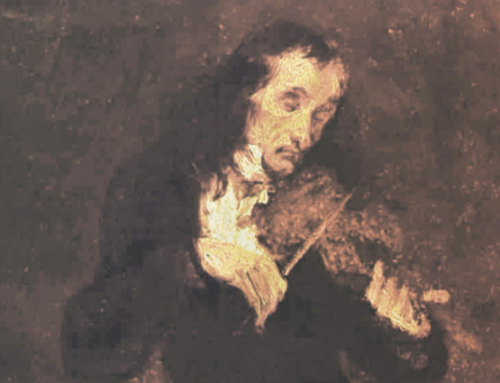
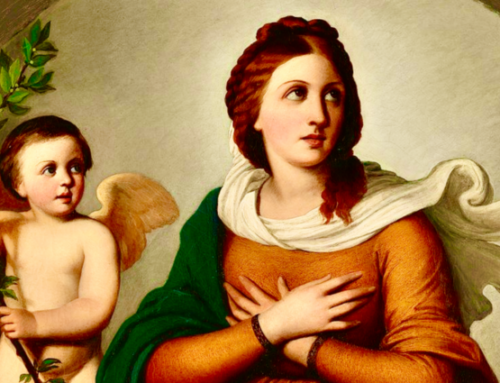
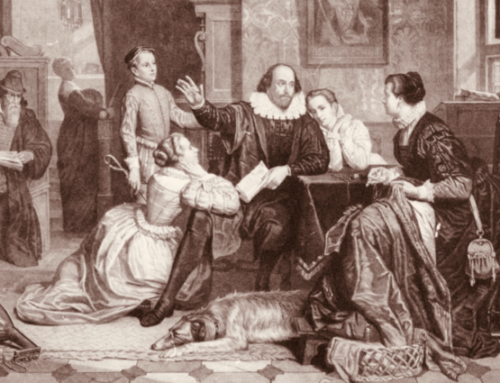
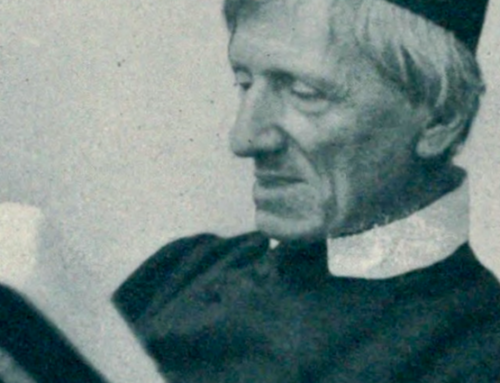
This is why I am glad for the prophecy of the Millenium when Messiah will reign on earth for a thousand years. (I have heard Christians confess that they don’t understand it – why can’t we just go straight into the eternal heavenly city?) But I am an earthy person, and very excited about the prospect of experiencing life on earth as it is meant to be – The King Returned, and Sauron in chains.
“…the Eye of Sauron,” how apropos. This brings to mind, that in Lyon last month, two Capuchin friars were taken into custody for attempting to burn down two 5G towers. The French authorities did not release their names. Could their names be Brothers Frodo and Samwise? I will keep “the Eye of Sauron” in mind. It helps me to keep things in perspective. I appreciate your insight.